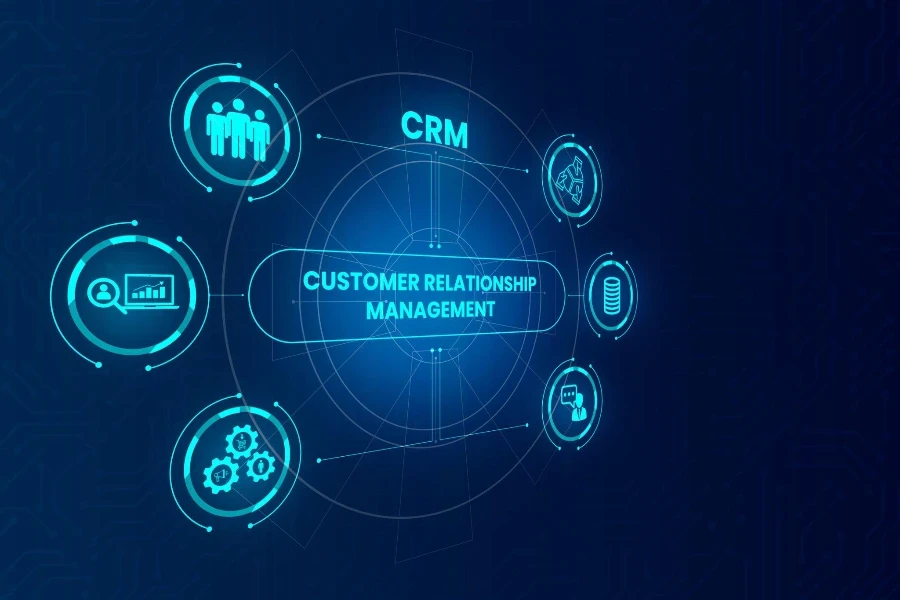In the ever-evolving landscape of business, understanding and managing customer relationships is paramount. CRM, or Customer Relationship Management, stands at the forefront of this endeavor, offering a comprehensive approach to not only managing but also improving interactions with customers. This article delves into the essence of CRM, exploring its key components, benefits, and strategic importance in today’s digital era. By breaking down complex concepts into digestible explanations, we aim to provide a clear understanding of CRM and its pivotal role in fostering business growth and customer satisfaction.
Table of Contents:
– What is CRM?
– Key features of CRM systems
– The strategic importance of CRM in business
– CRM’s role in customer satisfaction and loyalty
– Future trends in CRM technology
What is CRM?

Customer Relationship Management (CRM) is a strategy and technology suite used by businesses to manage and analyze customer interactions and data throughout the customer lifecycle. The goal is to improve business relationships with customers, assist in customer retention, and drive sales growth. CRM systems compile data from a range of different communication channels, including a company’s website, telephone, email, live chat, marketing materials, and social media. Through the CRM approach, businesses learn more about their target audiences and how to best cater to their needs, thus enhancing the customer experience and securing a competitive edge in the market.
Key features of CRM systems

A robust CRM system offers a myriad of features designed to streamline customer management processes. Firstly, contact management is a core feature, allowing businesses to segment their contacts into groups for efficient communication. Secondly, CRM systems provide sales management tools that help in tracking sales pipelines, customer interactions, and sales tasks, ensuring that sales teams can work efficiently and effectively. Lastly, automation of everyday tasks is another critical feature. This includes automated email responses or alerts about tasks, which significantly reduces the time spent on manual entries and increases productivity.
The strategic importance of CRM in business

Incorporating CRM strategies into business operations can dramatically enhance strategic decision-making. Data gathered from CRM systems offers invaluable insights into customer behavior and trends, enabling businesses to tailor their marketing strategies accordingly. This data-driven approach ensures that resources are allocated efficiently, maximizing ROI on marketing campaigns. Furthermore, CRM facilitates enhanced communication within companies by breaking down silos between departments. This ensures that all teams are aligned with the company’s goals and customer needs, fostering a cohesive and customer-centric business environment.
CRM’s role in customer satisfaction and loyalty

At its core, CRM is about building and maintaining positive relationships with customers. A well-implemented CRM strategy can significantly enhance customer satisfaction by ensuring that interactions with the company are smooth, personalized, and efficient. For instance, CRM systems can provide customer service teams with quick access to customer histories, enabling them to provide solutions tailored to individual needs. This level of personalization and attentiveness can dramatically improve the customer experience, leading to increased loyalty and a higher likelihood of repeat business.
Future trends in CRM technology

As technology continues to evolve, so too does the landscape of CRM. One of the most significant trends is the integration of artificial intelligence (AI) and machine learning into CRM systems. These technologies can analyze vast amounts of data more quickly and accurately than ever before, providing businesses with deeper insights into customer behavior and preferences. Additionally, the rise of mobile CRM and social CRM are trends to watch. These platforms cater to the increasing number of consumers who use mobile devices and social media, offering new channels through which businesses can reach and engage with their customers.
Conclusion
CRM is more than just a technology; it’s a strategic approach to managing and nurturing a company’s interactions with its customers. By leveraging the power of CRM, businesses can enhance customer satisfaction, foster loyalty, and drive growth. As we look to the future, the integration of advanced technologies into CRM systems promises even greater opportunities for businesses to connect with their customers in meaningful ways. Understanding and implementing CRM is crucial for any business aiming to thrive in the digital age.



